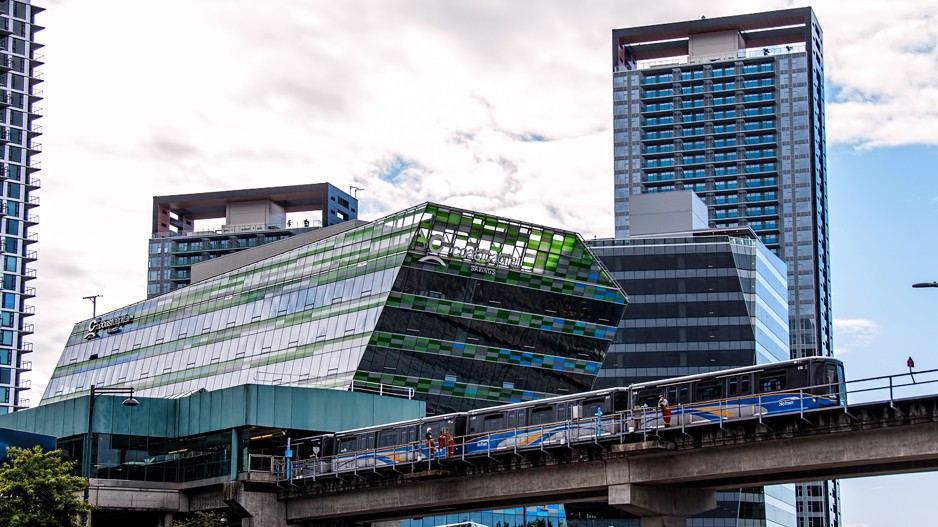Swift growth in Surrey drives city’s economic engine
The municipality’s size and expanding population are its strongest assets, business leaders say

Within the next decade, Surrey is projected to become British Columbia’s largest city, overtaking Vancouver in population.
With the rapid growth of the province’s second-largest city, it’s no surprise that some of B.C.’s largest and most established businesses have opted to headquarter south of the Fraser river.
“We made the decision to be out in Surrey because we wanted to be where our [customers] are and actively growing,” said Mike Ng, director of business banking at Prospera Credit Union. “We know that Surrey is one of the fastest-growing cities in Canada; it has a very pro-business climate, and we knew that people wanted to live there, set up business there. We could see that was happening, and we wanted to be in the middle of the action.”
Prospera’s main reason for deciding to have its headquarters in Surrey was the proximity to its business members located outside of the downtown highrise.
Surrey is not only home to large businesses that employ hundreds of people, but it also hosts an array of small and medium-sized businesses that form the backbone of the municipality’s economy.
The city is adding roughly 1,000 businesses each year, according to Anita Huberman, CEO of the Surrey Board of Trade. The thriving small-business community and the influx of businesses into Surrey over the past five years has also enabled large businesses to thrive by helping to create a corporate community, a strong customer base and a favourable business climate.
Ng said there’s no question that the growth of small and medium-sized businesses in Surrey has also helped drive Prospera’s growth.
“We’re only successful if all our members are, with the business growth and population growth [in Surrey] our members are thriving” he said. “They have the best chance of succeeding there, I think, [Prospera] is getting the benefit of that.”
The health of the business community in Surrey and its positive business climate also result in part from the diversity of businesses within its boundaries.
The companies range from financial services businesses like credit unions to poultry farms like Sunrise Farms and include manufacturers, sawmills and media companies.
But Huberman said the city’s main asset is its size, boasting 27% of Metro Vancouver’s industrial land inventory.
“We’re still able to build on land, while Vancouver has to build up,” said Huberman. “We are seeing a gentrification of businesses moving into Surrey and the South Fraser Valley.”
Despite reports from the Surrey Board of Trade that one in 25 Surrey businesses closed when COVID-19 hit B.C., Huberman said the pandemic has not stopped the city. While some businesses closed, other companies made Surrey their home, including businesses in the health and life science sectors and corporations that will help to strengthen the city’s manufacturing core.
Like most of the province, Surrey depends on small and medium-sized businesses for its economic health. While they don’t necessarily employ hundreds of people, Huberman said those companies can have assets valued at up to $500 million.
Small and high-asset-value companies also create demand and opportunity for more small and medium-sized enterprises.•